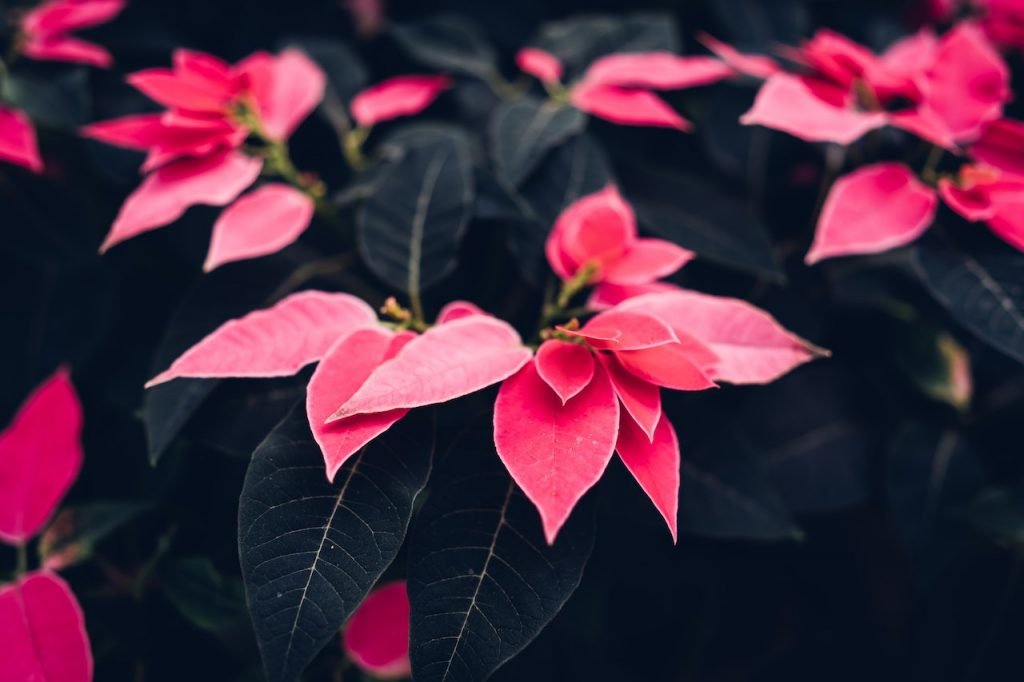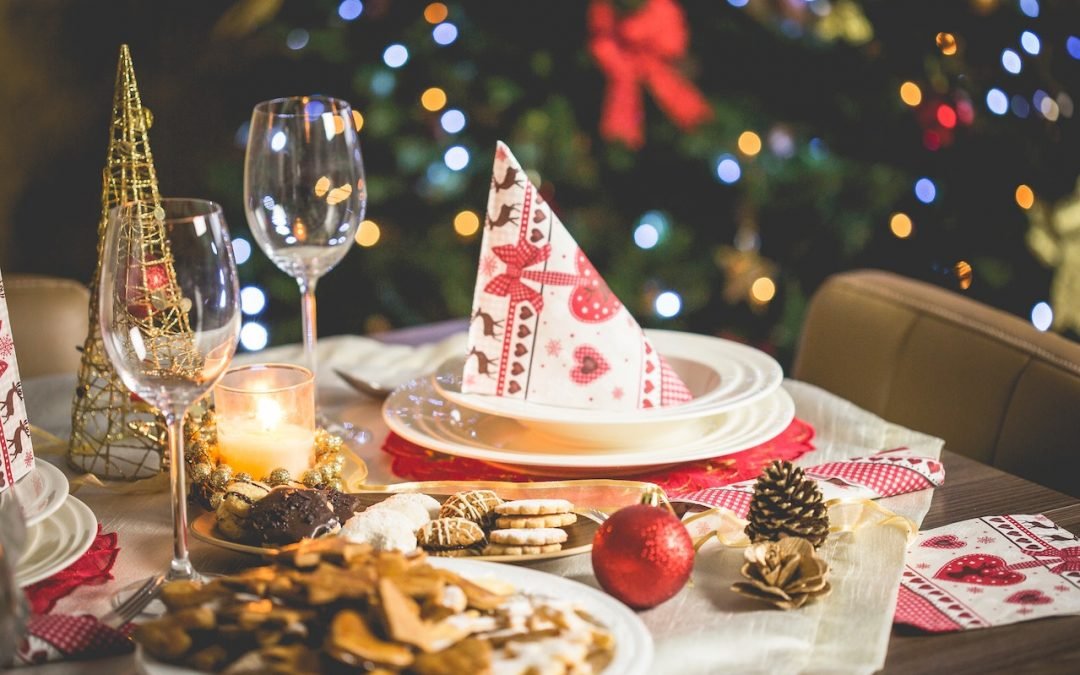The holidays are a fun time for gatherings, gifts, and delicious food. While most people enjoy the festivities, your pet may not. Pets may become stressed out by additional noise and visitors. The same is true of food and decorations.
The following information will help you keep your pets safe over the holiday season.
Food
It’s all too easy to give in to your four-legged companion’s pleading eyes. It’s crucial to understand what foods are safe for them to eat and which ones are not. Check with an expert, such as your local veterinarian, or a resource, such as the Pet Poison Helpline, for specific questions. Keep the phone numbers for your veterinarian and the local emergency veterinarian handy, especially if you’re traveling. In general, avoid feeding the following foods to your pet:
- Avoid eating sweets. We’ve all heard that dogs shouldn’t eat dark chocolate, but bread dough and cookie batter are equally harmful. The dough can rise in your pet’s stomach, causing bloating and excruciating pain. Additionally, just like their owners, pets can suffer from stomach upset from eating too much sugar or salmonella poisoning from eating raw eggs in cookie batter.
- Avoid fatty skin and bones. If the bones are brittle, like those from chicken or turkey, they may become stuck in the animal’s intestines. In light of this, be careful when disposing of bones in case a curious nose sniff somewhere it shouldn’t. Another no-no is turkey skin which is too fatty. The skin contains a lot of fatty juices and butter, which your pet might find challenging to digest. Too much fatty food can also result in pancreatitis. As a special treat, a small amount of unseasoned white meat is usually fine.
- Watch your drink closely. Even though we all know that pets should only drink water, there is a chance that they might sneak a sip or two from an unattended glass of alcohol. Although they enjoy the smell of beer, dogs cannot digest the hops found in beer.
- Spice is not the best. On the digestive system of your pet, that is. Sage is a common seasoning for chicken. Although it is delicious for pet owners, it can upset pets’ stomachs or even worsen digestive issues. Additionally, foods that contain a lot of salt, like ham or other cured meats, can be problematic.
Nutmeg is another dangerous ingredient that can harm your pet. If your pet ingests the popular spice used in pumpkin pie, it may result in seizures and other issues with the central nervous system. Pets can safely eat pumpkins on its own as a treat. Simply stay away from anything that has nutmeg seasoning.
Several holiday foods, such as onions, garlic, raisins, grapes, and the artificial sweetener xylitol, can be toxic to pets. For a list of additional foods to stay away from, consult the Humane Society of the United States list of pet-harmful foods or request a list from your veterinarian.
Decorations
This time of year, sparkly decorations may pique your pet’s interest. Here are some things to keep in mind as you set up and display your holiday decorations:
- Carefully trim your tree. Your Christmas tree might serve as the ultimate climbing structure for cats. Ensure that your tree is firmly anchored to prevent a dangerous fall. Keep pets away from tree water if you have a real tree. Tree water may serve as a bacterial haven. Water that has been treated with plant food may even be toxic. There are numerous recipes available online for making non-toxic tree food to ensure that your tree lasts the entire holiday season.
- Use tinsel with caution. Inquisitive cats are drawn to tinsel because of its shiny appearance. Tinsel can, however, curl around the intestines or ball up in the stomach if consumed, causing excruciating pain and necessitating (expensive) surgical removal.
- Ornaments are not for playing. If swallowed or stepped on, glass ornaments can cut your pet’s mouth or digestive tract. While homemade salt ornaments are enjoyable to make, the large amount of salt consumed at one time can be fatal to a pet.
- Be vigilant of lights. During the holidays, lights are displayed both indoors and outdoors. Make an effort to keep pets away from electrical cords. Inquiring minds may mistake lights for a brand-new chew toy and receive a startling surprise as a result.
- Be cautious with candles. Pets are less cautious than we are around candles. Ensure that candles are out of paw and tail reach. Even better, choose a battery-powered option that you “light” safely.
Plants For The Holidays

During this festive season, holiday plants are frequently used to spruce up a home. These three common holiday plants can be harmful to pets.
- Poinsettia: This common Christmas plant isn’t as bad for pets as people think, but it still has the potential to harm them. The Pet Poison Helpline reports that poinsettias contain a milky white sap that can lead to skin irritability, drooling, and gastrointestinal problems like vomiting when consumed.
- Holly: If your pet consumes a holly berry or leaf, they won’t be experiencing any holiday cheer. After your pet takes a bite, nausea, vomiting, and diarrhea may start to happen almost immediately.
- Mistletoe: If consumed by pets, mistletoe can lead to digestive and cardiovascular issues.
Your best option to avoid any unnecessary trips to the animal emergency room is to buy silk or plastic versions of these common holiday plants.
Travel And Entertainment
It’s great to bring your pets along on holiday road trips, holiday parties, and family gatherings. When involving your pets in your holiday customs, bear these things in mind.
- Crowds and noise: If you’re hosting guests, think about providing a quiet space for a shy or worn-out pet to rest. Watch out for young children near your pets. Even a well-mannered dog may bite when scared or stressed. Finally, be a considerate host by inquiring in advance about any allergies or animal phobias your guests may have so you can make preparations.
- Traveling with pets: Prepare their belongings ahead of time and understand what to look for when buying a pet carrier or car harness.
- Keeping pets warm: Dress dogs in sweaters or coats, or use booties to protect their paws from snow and salt. To avoid salt burn on tender paws, use pet-friendly salt whenever possible. If your pet enjoys spending time outdoors, make sure they have a suitable shelter and a water bowl that has been certified by UL to prevent water from freezing. Finally, remember your pet’s age. Our pets, like humans, become more sensitive to the elements as they age.
If you’re unsure whether your pet will enjoy traveling or being with a crowd, it’s best to keep them somewhere they can be comfortable and avoid any possible stress. At Pets Are Inn in Plano, Texas, we carefully choose the home that best meets the needs of your beloved pet. Our deeply committed families act as your pets’ substitute homes in a cheerful, laid-back, and cage-free setting during the holidays. Visit our website or give us a call at 972-424-8400 to know more about our services!

